Parasites are likely to be called human's natural companions, as these organisms cannot live outside the host's body. It is believed that at least 70% of the world's population is infected with various worms. Furthermore, many have been their home almost from birth. At the same time, he pondered how to determine the presence of parasites in the body, about a third of those infected. The reason for this is a lack of awareness or interest in people's health conditions.
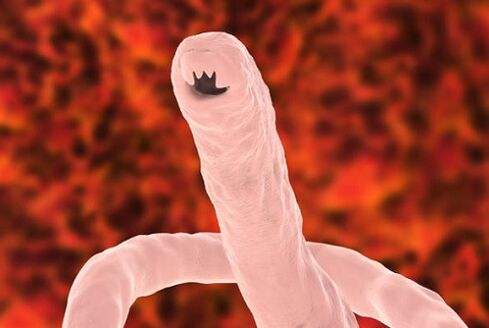
To avoid complications from parasites, it is important to recognize the infection promptly.
According to statistics, more than 60% of parasite-infected people learn about the problem by accident, and only about 30% of people purposely look for the symptoms of helminthiasis, and then go to a specialist to find out the problem.
Until recently, helminthiasis was often referred to as the poor man's disease because of the poor instillation of hygiene skills in these layers. However, with the growing interest in the subject in the scientific community, it has been found that such a definition is fundamentally wrong, as bugs can be found in farmers and respected businessmen alike.
Why is it dangerous to coexist with parasites?
A lot of people don't understand, why get tested for parasites if you don't have serious health problems? If they don't interfere with your usual way of life, why do you need to look for any interruptions in your state? Also, 8% of the population has a legitimate question - what if a person has learned to have parasites in his body? After all, evolution doesn't stand still, and what was once considered harmful may have become the norm.
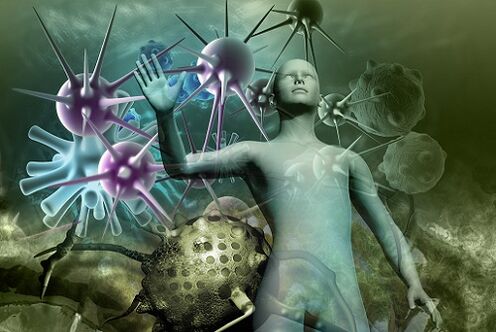
A similar question has been raised more than once, and any doctor, even the most inexperienced, will say that parasites are different from symbionts (a microbe that lives peacefully in the human body, for example, which helps to deal more effectively with andabsorb food) because it needs more than it gives. In humans, parasites often behave like very unreliable and irresponsible hosts:
- clog it with toxins and slag;
- subvert natural defenses (immunity);
- take away most of the nutrients;
- Damages internal organs on a physical level.
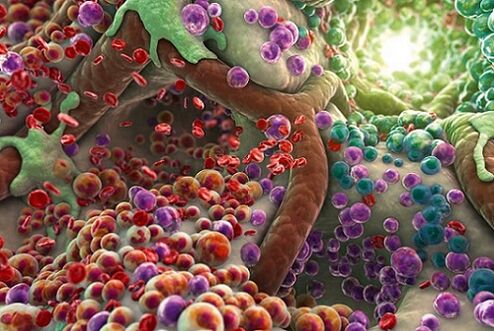
This is the so-called parasitism, that is, it exists in the host's body, extracts the greatest benefits for itself, but does not provide benefits for the host.
Prompt detection of parasites can help avoid many problems, including severe endocrine and hormonal disturbances, internal organ dysfunction and even psychiatric disorders.
What are the signs of parasites
Most of the parasitic life forms harmful to humans live in the gut and internal organs. They rarely go out in their raw form, so during the initial diagnosis, doctors only consider external signs of their stay. Their presence can be determined by a combination of clinical manifestations.

In 99% of cases, the host's body reacts violently to dangerous neighborhoods. A helminth infection can be signaled by various disturbances in bodily functions, depending on the organ in which they reside. Since it is difficult to detect the parasite in its natural form, it is important to watch for the following symptoms:
- Sudden onset of digestive disorders. Mostly, they indicated that intestinal forms of worms -- round and tapeworms, lamblia and protozoa -- had begun to parasitize. This group of symptoms can manifest as sudden constipation or diarrhea, nausea and vomiting, belching, and indigestion. Another sign of helminthiasis is vague abdominal pain that may not have a clear localization.
- Allergic reactions in the form of rashes, peeling skin, spots appearing. In most cases, it is impossible to find out the source of this reaction because the allergen test shows a negative result. The cause of the atypical immune response will only become clear after the patient passes a test for the presence of parasites in the body.
- General deterioration in health, manifested as fever, fatigue, and decreased sleep quality. Similar clinical manifestations of helminthiasis appear immediately after invasion, and the disease course is prolonged. With no immediate identification of the parasite, many patients try to cope with these unpleasant phenomena with the help of folk remedies and symptomatic drugs. Often, they only bring temporary relief.

Symptoms inherent to certain diseases associated with helminth infection are only found in women. As a result, their hair and nails become dull and brittle. The skin also suffers from parasites - it becomes pale, pustules, age spots, peeling appear.
A rare woman has linked beauty problems to worms. Most end up saying, "I'm vitamin deficient, hormonal imbalance, not bugs! "
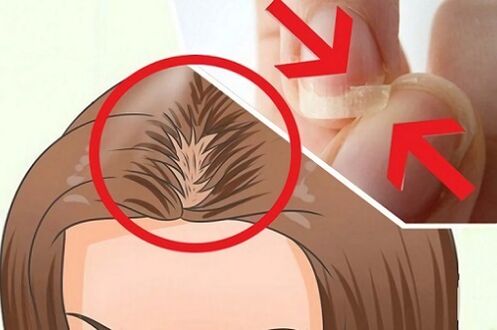
If you suspect that there are parasites in your body, how do you know what causes them to appear? There are many ways to diagnose yourself at home, as well as specific ways to identify worms.
How to Identify Helminthiasis at Home
About 70 percent of patients who thought they had worms didn't want to see a doctor about the problem. The point here is not to say that a person does not care about their health. Until now, helminthiasis was considered a shameful disease that only occurred in the lower classes. However, experts say that the reasonably wealthy can get a sinister settler.
Since most worms colonize the gut, the only way to identify their presence is to examine feces. This tried-and-true method forms the basis of stool microscopy, during which doctors can detect worm eggs.

This is the most direct and cheapest method and can be done at home. However, due to the small size of the worms, it will not let you detect the eggs of the worms.
How does the self-test work?
There are several rules for how to determine the presence of parasites in the human body in this way:
- Feces should be checked several times, as worms do not appear often, but rather regularly. Since different types of worms become active at different times of the day, it is worth collecting the morning and evening parts of the stool. You'll find pinworms in the morning, and at night you'll often encounter larger worms -- roundworms and tapeworms.
- People checking stool for worms should wear disposable medical gloves. Most worms actively secrete eggs, which, if ingested, can cause reinfection. It is important to protect yourself even if you already have symptoms of a worm infection. Throw away gloves and wash hands thoroughly with soap and water.
- In the process of examining the stool, it is worth using an object, as parasites can be found not only on the surface of the stool, but also in the center of the stool. It is recommended to discard the stick or spatula after use.
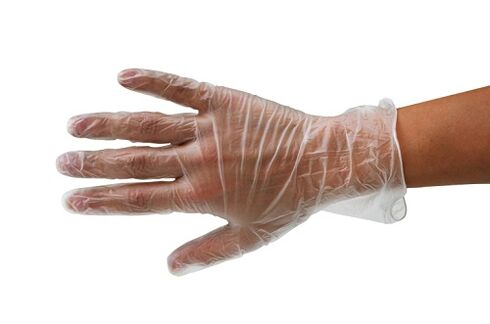
Lastly, the most important rule is to teach yourself about worms in feces. It is recommended to collect the material in a separate bowl, as it is unlikely to be inspected with special care in a toilet or toilet. As a last resort, you can cover the toilet with plastic, empty it, and double-check the feces.
Experts recommend applying a small amount of material to the glass, then inspecting it from all sides in good light. Thus, even the smallest parasites can be seen.
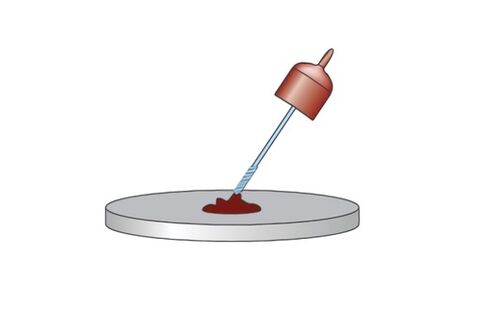
stool self-test results
It is necessary to talk about 100% presence of helminthiasis if it can be found in feces:
- Small worms, live or immobile;
- white or yellowish flakes that look like boiled noodles with slightly wavy edges;
- What looks like fragments of rice grains that can move;
- Large white or pink roundworms.
All of these signs point to a dangerous worm infection, which can lead to serious health problems, including sudden death. But even if the stool proves to be "clean" and there are symptoms of helminthiasis, you should urgently contact an infectious disease specialist or pediatrician (if a child has signs of helminthiasis).
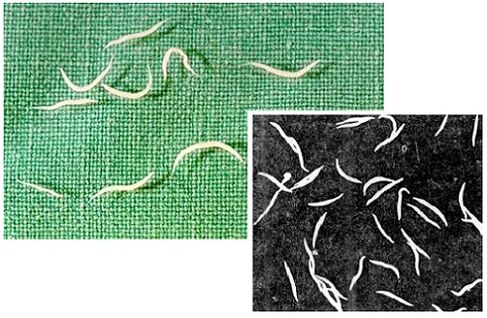
Worm testing in the clinic
Since it is difficult to find out whether there are parasites in the body by yourself, and the results of self-diagnosis are not very accurate, you should entrust a professional for diagnosis. A doctor or infectious disease specialist will recommend the necessary tests. If signs of invasion bother your child, you can seek help from your pediatrician.
To make an accurate diagnosis, you need to:
- Microscopic analysis of stool (coproovoscopy) - preferably three times every other week;
- Scraping for enterobiasis;
- ELISA blood test - one delivery is enough to make a reliable diagnosis;
- Stool PCR Analysis - Prescribed upon receipt of equivocal results from stool microscopy.

Additionally, doctors may prescribe additional instrumental diagnoses. This usually occurs when the presence of worms in the liver parenchyma and bile ducts or other internal organs is suspected. In the presence of worms, the test will be positive (parasite eggs, their DNA, antibodies and antigens will be found in the material).
Depending on the diagnosis, patients are prescribed treatment, which can almost always be done at home (not many parasitic infections require hospitalization). Treatment may be required for all family members of worm carriers, as many species of these organisms are easily spread from person to person.

















































